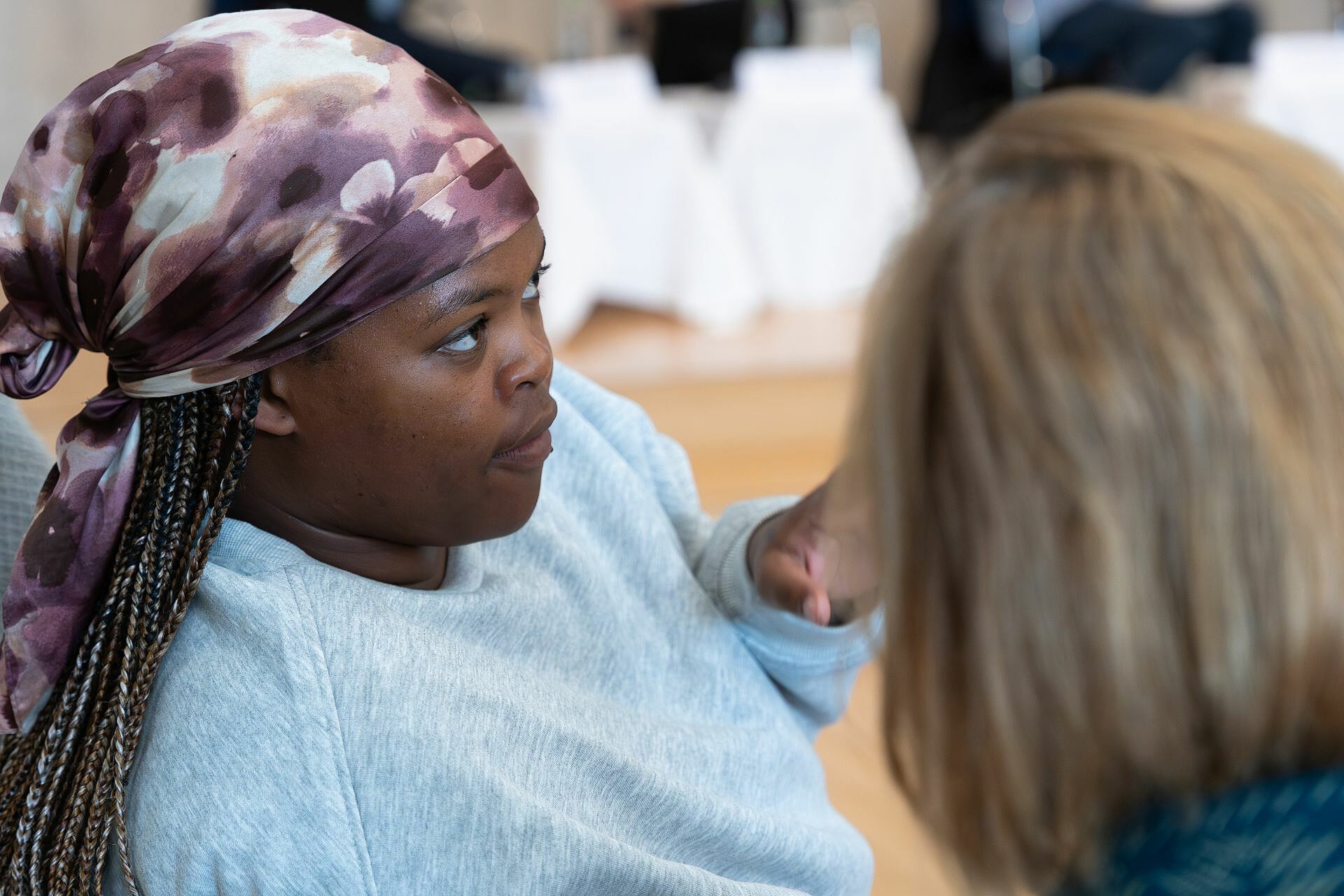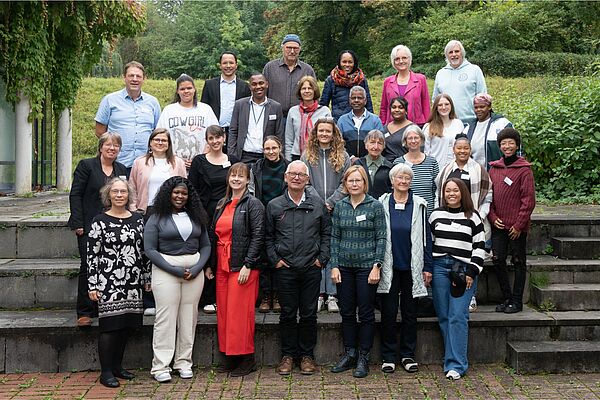Wednesday, 01. October 2025
No Borders in the Fight Against Gender-Based Violence
An international conference explores structural roots, intersectional impacts, and collaborative strategies to combat GBV in South Africa and Germany.

“No more silence, no more violence.” – This is a call to action to fight and prevent gender-based violence (GBV) in societies across the world. Participants at the recent conference themed “South Africa and Germany in Solidarity: Walking Together Against Gender-Based Violence” emphasized the importance of speaking up on this sensitive issue to protect victims, raise general awareness, and prevent further assaults.
The Evangelical Mission in Solidarity (EMS), together with the Evangelical Academy Bad Boll and the Kirchliche Arbeitsstelle Südliches Afrika (KASA), hosted the international conference in Bad Boll, Germany, from 26-28 September 2025.
The gathering brought together activists, artists, theologians, and youth from Germany and South Africa to share strategies, listen to survivors, and co-create spaces of advocacy. It highlighted collaborative efforts such as joint campaigns, faith-based action, youth exchanges, and inclusive advocacy addressing all forms of GBV. Participants explored ways to extend this work beyond the conference into communities, institutions, and public life – toward a world where every person is safe, seen, and free.
Until every woman and girl can live free from fear
A keynote address came from Nonhlanhla Anda Nkosi from the Moravian Church in South Africa (MCSA), who is also Chief Director of strategy at the Western Cape Department of Health and Wellness.
Nkosi spoke of GBV as a deep-rooted presence in daily life and its structural ties to patriarchy, poverty, and historical trauma. “In South Africa, poverty, race, and gender collide in ways that make women even more vulnerable, while cultural norms too often keep survivors silent and protect abusers,” she said.
Despite strong legal frameworks in South Africa, survivors often face stigma and disbelief, especially in rural areas where GBV is treated as a private matter. The MCSA has responded by forming an Anti-GBV and Femicide Steering Committee focused on awareness, training, survivor support, and policy development. While challenges persist – including limited resources and cultural resistance – there are signs of hope through growing community engagement, youth activism, and international solidarity.
Nkosi called for the spirit of Ubuntu (the interconnectedness and shared humanity - “I am because you are”) to be carried forward “into our shared fight against GBV, until every woman and girl can live free from fear and have a chance at realizing their fullest potential.”

GBV and digital violence are interconnected
In her presentation on GBV in Germany, Uta Hergenröther from the Berlin Office of UN Women Germany echoed many of the aspects pointed out by Nkosi. Hergenröther highlighted the pervasive nature of gender-based violence in Germany, rooted in patriarchal structures and reinforced by societal norms, crises, and digital technologies. She pointed out that most violence is committed by men close to the victims, with domestic violence being the most common form.
Digital violence, such as cybermobbing, hate speach and stalking, is rapidly increasing, often extending or intensifying offline abuse. “Digital violence is not a digital problem, but a societal one,” Hergenröther said. Also, marginalized groups, including trans, non-binary individuals, and women of color, face heightened risks due to intersectional discrimination, where multiple forms of discrimination operate simultaneously and reinforce each other.
The consequences of such violence include restricted freedom, reduced public participation, and threats to democracy. Alarming statistics from 2023 show rising rates of femicide, sexualized violence, and politically motivated misogyny. Nevertheless, “All women and girls have the right to a life free from violence and fear,” Hergenröther insisted.
In their advocacy against GBV, UN Women Germany calls for a comprehensive, cross-sectoral strategy involving legal reforms, education, media accountability, and full implementation of international conventions like the Convention on the Elimination of All Forms of Discrimination against Women (CEDAW) and the Istanbul Convention.
Solidarity is the way forward
David William Daniels, Facilitator for Youth Leadership Development at the MCSA, emphasized the need for united commitment, specifically from people of faith in Germany and South Africa, to combat GBV through active solidarity, not just symbolic gestures. “Germany and South Africa, though separated by oceans, are united by a shared resolve: to end gender-based violence and to walk together in solidarity toward healing and transformation,” Daniels said.
The diverse voices from activists, theologians, artists, and youth at the conference reflected a living example of solidarity in action.
“Let our solidarity cost us comfort,” Daniels said. “Let it compel us to act, because the world is crying for us as the faith community to respond.” He urged participants to extend their efforts beyond the event into everyday spaces, pledging long-term companionship in the fight for justice, dignity, and safety for all.
“The value and necessity of intergenerational and international conferences was reinforced for me,” said Rev. Eleanor McCormick, Head of Department Programmes and Networks at EMS. “Our conversations were deeper and our assessment of potential solutions for ending gender-based violence were more profound because we chose to listen deeply across our diversity.”
“We want to stay in touch and continue these important conversations,” added Rev. Georg Meyer, Head of Department Regions and Mission Associations. “The South African context and the experiences made by the MCSA in their quest to combat GBV and femicide could provide valuable resources to other regions and networks.”